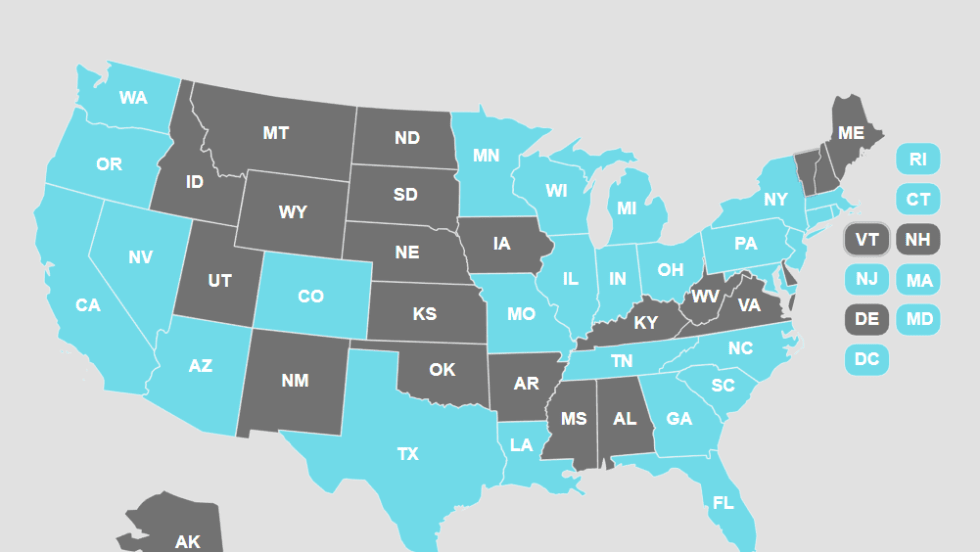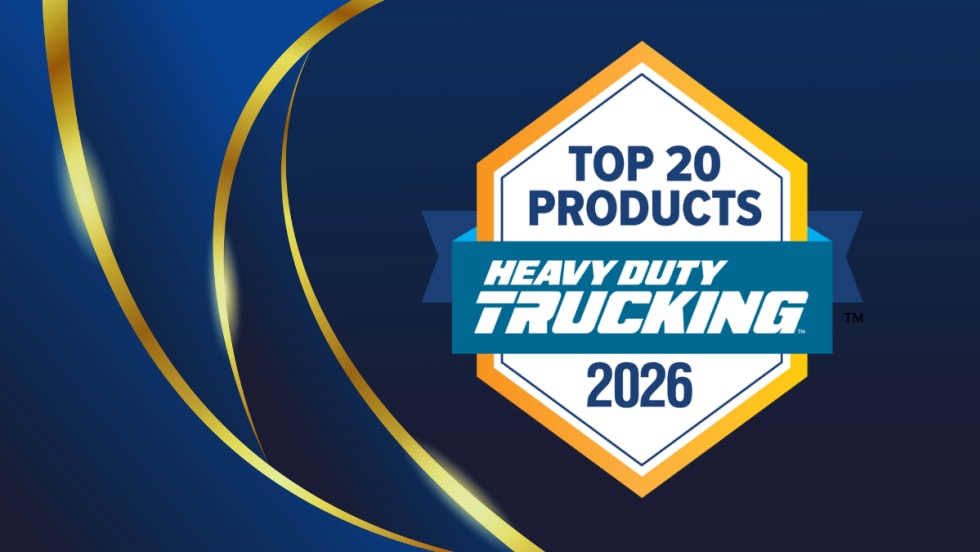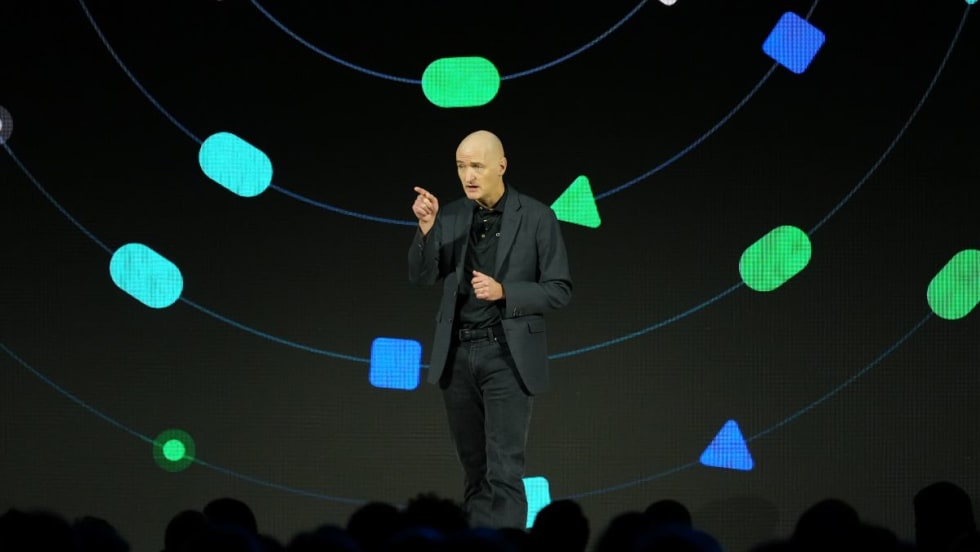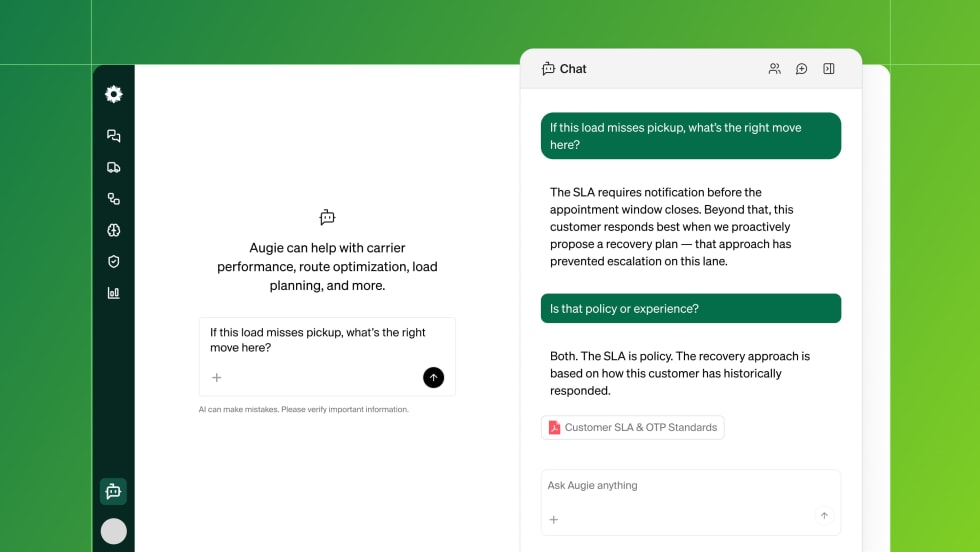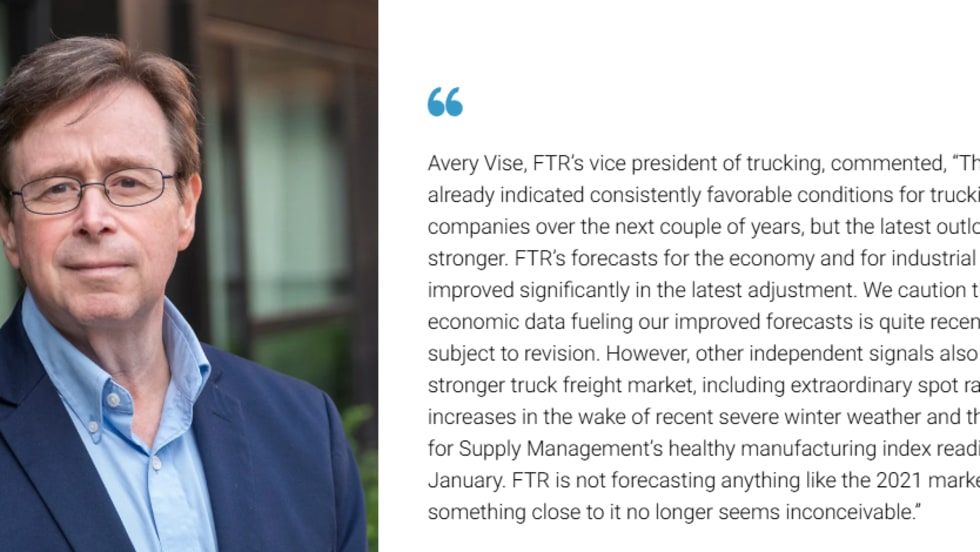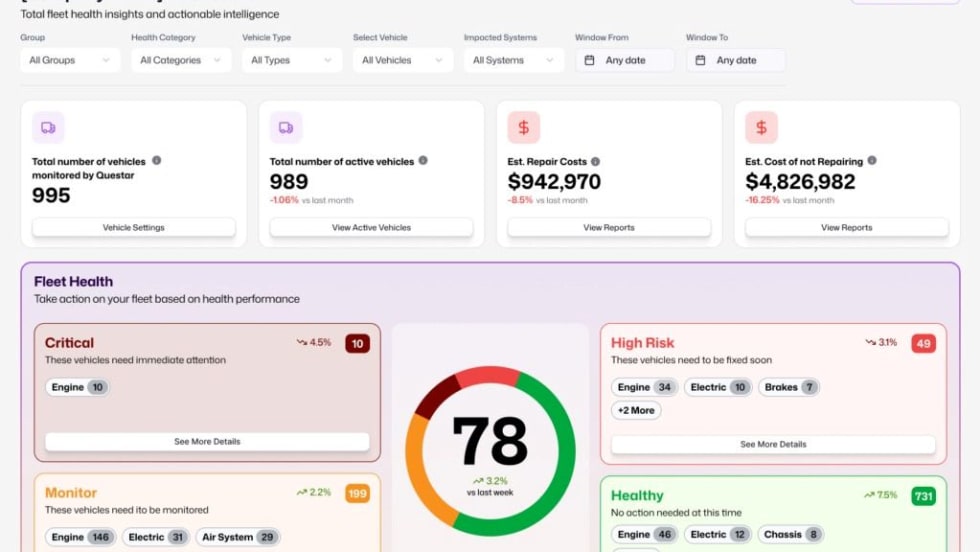As the trucking industry continues to ride the roller coaster caused by the economic and supply chain shocks of the COVID-19 pandemic, fleet managers are dealing with a landscape that’s one of the most challenging in recent memory. But there is also opportunity, says Brian Holland, president and CEO of Fleet Advantage.
Over the past few years, freight rates have been stagnant and small operators have been exiting the market. Making things more complex are new heavy-duty truck emissions regulations on the horizon.
In a recent episode of the HDT Talks Trucking podcast, we spoke with Holland about the state of the economy and the trucking industry. Fleets that stay flexible and take a longer-term, data-driven planning approach are better able to deal with uncertain times — and be positioned to come out ahead as conditions improve.
Trucking in 2024: Challenges and Opportunities
While 2024 has been a challenging year for the industry, it has also presented opportunities, Holland said.
“Despite the pressure on rates and ongoing issues like truck parking, fuel prices, and driver shortages, we are seeing signs of improvement,” he said. “Industry analysts are suggesting that freight demand will recover, driven by consumer spending and retail sales.”
The first quarter economic indicators did not look good for trucking. Freight rates remained depressed, and GDP growth was weaker than in previous quarters. Freight shipments and spending both declined at a greater rate than in 2023, reflecting the ongoing challenges facing the industry.
On the other hand, he said, fuel and tire expenses trended downward, as did Class 8 used truck prices, and repair and maintenance costs remained below inflation.
“While there's no doubt that conditions have been tough, there are opportunities in every market,” he said. Focusing on operating efficiencies and cost savings can help get trucking fleets through this down cycle in the industry.
“And by focusing on life cycle management and paying attention to their KPIs, they can create the total lowest cost of ownership and remain competitive.
“The industry is very cyclical, and that cyclical nature really requires fleets to be flexible and adaptable,” Holland explained. “Rather than just responding to the market, having a multi-year strategy built around the life cycle of their assets can help fleets better navigate these cycles.”
The good news is, there are indicators that things are looking up.
“There’s a lot of optimism that economic conditions are improving,” he said. “There's renewed hope that the Fed will start lowering interest rates, and that would alleviate some of the cost pressures on the equipment investments. Freight fundamentals are expected to recover in 2024, driven by consumer spending.
“However, strategic planning and flexibility will be crucial for fleets to be able to capitalize on these improvements.”
Private Fleets vs. For-Hire Carriers
Fleet Advantage’s customers are primarily private, rather than for-hire fleets. Holland noted that private fleets have generally fared better than their for-hire counterparts in this cycle.
In fact, some of the difficulties that the for-hire carriers have faced are the result of expansion in the private fleet market. Private fleets have been adding trucks while for-hire fleets have been shrinking their truck numbers.
ACT Research noted in August that private fleets have taken around 6% market share from for-hire carriers since early 2023, leaving the for-hire market with overcapacity despite rising freight volumes.
“Private fleets benefit from a more controlled environment, and they can implement strategic planning more effectively,” Holland explained.
“For-hire carriers face harsher economic realities, but the private fleets can leverage flexible leasing options and data-driven decisions.”
Such an approach, he said, can help all types of fleets be better positioned to weather these challenges.
Emissions Regulations Create Uncertainty
Beyond economic challenges, trucking fleets are also facing the pressure of new emissions regulations. Upcoming rules targeting both criteria pollutants like nitrogen oxides (NOx) and greenhouse gas emissions are causing uncertainties in the trucking industry on the best way forward when it comes to equipment planning.
“There has been some emphasis on electric trucks, although that seems to be waning,” Holland said. “Clean diesel and hydrogen are critical components of an emissions reduction strategy.”
Fleet Advantage, he noted, has been helping its clients reduce their environmental impact through shorter asset life cycles, which not only reduce CO2 emissions but also improve fleet performance.
In 2023 alone, Fleet Advantage’s focus on shorter life cycles helped its clients cut 300,000 metric tons of CO2 emissions, bringing the company’s total reductions since inception to approximately 1.3 million metric tons.
However, Holland emphasized that environmental sustainability must be balanced with economic sustainability.
“Fleets need to have a long-term strategy that aligns their life cycle with a multi-year plan,” he said. “Not only will they achieve their sustainability measures, but they’ll also improve the performance of their fleet and the overall health of their business.”
Preparing for the 2027 Pre-Buy
Those emissions regulations have led to what’s known as a “pre-buy,” where fleets rush to purchase trucks ahead of new emissions regulations, to avoid higher truck prices and unknowns when it comes to longevity and maintenance.
With new rules targeting diesel exhaust emissions set to take effect in 2027, “The pre-buy is prompting a lot of fleets to expedite their procurement plans,” Holland said.
He predicted that this will result in the largest truck pre-buy ever, with some analysts suggesting that it has already begun. Fleet managers need to be closely monitoring how the California Air Resources Board (CARB) regulations and other upcoming emissions standards will impact their procurement strategies.
Rather than taking a reactionary approach, Holland advised fleets to remain adaptable and follow a data-driven strategy. By implementing multi-year procurement plans, fleets can ensure that they not only meet their environmental, social, and governance (ESG) goals but also optimize their equipment to suit their specific operational needs.
How Trucking Fleets Can Benefit from Data-Driven Decisions
A recurring theme in the conversation was the importance of using data to make intelligent decisions.
Today, trucking fleets have access to vast amounts of data, but the sheer volume of information can be overwhelming.
“We try to advise our clients to be selective in the type of data that they’re looking at,” HOlland said. “Part of our strategy and our value proposition is that we help synthesize that data into what we believe is actionable.”
At Fleet Advantage, he said, they leverage billions of miles of data, combining it with predictive modeling and flexible financing to help clients make better decisions.
Holland also noted that artificial intelligence is playing an increasingly important role in the industry.
“Data and artificial intelligence are crucial for better decision-making and strategic planning,” Holland said. However, he cautioned that fleets should take a measured approach to AI adoption.
“We’re advising our clients to look at how they can integrate AI into their everyday operations, but also to take a more conservative view rather than just jumping full into AI.”
The growth of AI is just one of the ways the trucking environment is changing.
“You know, it's a fascinating time in the industry, with the transition to alternative fuels, with the CARB pre buy,” Holland said. “There's no lack of challenges in the industry, but I would also say that there's no lack of opportunities.
“So fleets that are responsive, that utilize their data and are able to synthesize through some of the difficulties, will find themselves better positioned to compete in the marketplace.”







